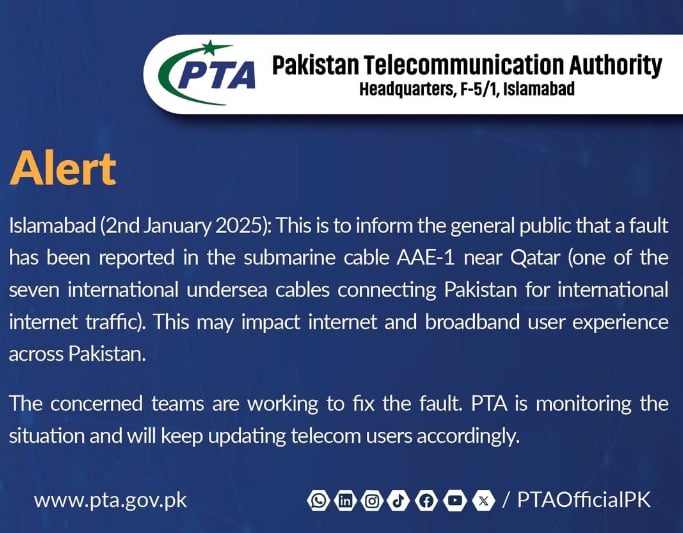Travel
Human Rights Day
字号+ Author:Smart News Source:US 2025-01-11 23:38:26 I want to comment(0)
THE year 2024 draws to a close amid profound global turbulence — where seemingly all development gains are reversible: rising poverty, intensifying conflict, and deepening polarisation have tested societies across the globe. For Pakistan, these challenges are not distant or abstract; they manifest in the daily lives of its people, where economic inequality, climate vulnerability, and social exclusion amplify hardship. The United Nations’ Summit of the Future held in September this year served as a critical moment to reflect on the world six years from the 2030 Agenda’s finish line, and to restore faith in multilateralism and address today’s most pressing global challenges. For Pakistan, the summit’s calls for deeper international cooperation, revitalised governance, and a renewed focus on inclusion offer a timely framework for its development trajectory. On this International Human Rights Day, commemorating the 76th anniversary of the Universal Declaration of Human Rights and within the global 16 Days of Activism against Gender-Based Violence, we reflect on how these global aspirations can shape Pakistan’s local realities. The protection of human rights, especially for women, girls, and marginalised groups, must not just be a priority but the very foundation of sustainable development. Pakistan’s development challenges are pressing. Once classified as a country with medium human development, it now ranks 164th out of 193 countries in the 2023-2024 Human Development Index. Its gender equality gap persists as one of the widest globally, ranking 145th out of 146 countries in the , with 28 per cent of women aged 15-49 reporting experiences of physical violence. These indicators reveal entrenched patterns of marginalisation and inequality that threaten not only individual well-being but also societal stability and potential for growth. For Pakistan, the lesson of development pioneers like Nobel laureate Amartya Sen or Dr Mahbub ul Haq remain profoundly relevant. Both emphasised that true progress comes from policies that prioritise people — expanding freedoms, empowering the marginalised, and creating equitable opportunities. As Pakistan grapples with economic and social headwinds, these principles must inform its path forward. Inclusion must be central to Pakistan’s development story. To bridge widening societal fissures, Pakistan must pivot towards an inclusive development model that transcends traditional GDP metrics. This requires prioritising the empowerment and well-being of its people, bridging the digital divide to ensure inclusive and equitable access to technology, safeguarding environmental ecosystems, and strengthening governance and institutions. In this context, ( ), UNDP Pakistan’s flagship quarterly publication, dedicates its final edition of 2024 to the Universal Declaration of Human Rights. Its principles serve as both a mirror for reflection and a guide for action, with inclusion as its core value driving Pakistan’s development narrative. UNDP is steadfast in its commitment to people-led, collaborative planning as the foundation of transformative change. As we prepare our new global UNDP Strategic Plan 2026-2029, our nationwide consultations have identified key priorities for Pakistan: climate resilience, economic stability, youth development, and digital inclusion. These priorities are critical to the agenda of inclusive development, as reflected in the essays by our authors featured in this issue. Closing Pakistan’s $348 billion Sustainable Development Goal financing gap by 2030 requires bold action and innovative solutions. Economic reforms, investments in renewable energy, healthcare, and innovative financial instruments to mobilise climate and SDG-aligned funding must be prioritised. Governance and institutional reforms are equally vital. Safeguarding and expanding civic space, defending the defenders of human rights, and going the extra mile to protect the most vulnerable should be at the forefront of Pakistan’s rights-based approach to development. Defeating polarisation and encouraging dialogue, rebuilding inter- and intra-communal trust, safeguarding freedom of expression, and encouraging civic engagement are fundamental to Pakistan’s multidimensional human security agenda. Pakistan’s greatest untapped resource is its people, especially its youth and women. With two million young people entering the workforce every year, and 34pc of them not engaged in education, employment, or training, a dual focus on entrepreneurship and employment is critical to provide decent work for all. Economic and digital inclusion, particularly for women, can be transformative. Our highlights how women’s access to a smartphone could create unprecedented opportunities in financial inclusion, health, and education. As 2025 approaches, further alignment between Pakistan’s development agenda and the SDGs is imperative. The leaves no room for delay. Together, we can write a development story that is paved by respect of fundamental rights, inclusion and equitable opportunity for all, once and for all. The time to act is now.
1.This site adheres to industry standards, and any reposted articles will clearly indicate the author and source;
 Related Articles
Related Articles-
بھارت اور آسٹریلیا کے درمیان چوتھے ٹیسٹ میچ میں ایم سی جی کی شرکت کا ریکارڈ ٹوٹ گیا۔
2025-01-11 23:16
-
کراچی میں کھلا مینہول ایک اور نوجوان کی جان لے گیا
2025-01-11 23:06
-
پاکستان اور متحدہ عرب امارات نے باہمی تعاون کو فروغ دینے کے عزم کا اعادہ کیا۔
2025-01-11 22:56
-
لکی مروت میں دہشت گردوں نے دو پولیس اہلکاروں کو شہید کر دیا
2025-01-11 22:00
 User Reviews
User Reviews Recommended Reads
Recommended Reads Hot Information
Hot Information- میلبورن میں چائے کے وقفے کے بعد آسٹریلیا نے سات وکٹیں لے کر بھارت کو شکست دی
- انسدادِ احتساب نے عمران خان کی نئی توشہ خانہ کیس میں ضمانت کی درخواست پر تفصیلی فیصلہ جاری کر دیا۔
- پی پی پی کی وارننگ کے بعد اقبال کا کہنا ہے کہ کوئی سنگین اختلاف نہیں
- انسدادِ احتساب نے عمران خان کی نئی توشہ خانہ کیس میں ضمانت کی درخواست پر تفصیلی فیصلہ جاری کر دیا۔
- بھارت اور آسٹریلیا کے درمیان چوتھے ٹیسٹ میچ میں ایم سی جی کی شرکت کا ریکارڈ ٹوٹ گیا۔
- لکی مروت میں دہشت گردوں نے دو پولیس اہلکاروں کو شہید کر دیا
- پی پی پی کی وارننگ کے بعد اقبال کا کہنا ہے کہ کوئی سنگین اختلاف نہیں
- حکومت کی جانب سے خبرداری، عمران خان کی قائم کردہ جماعت کے نئے مطالبات مذاکرات کو خطرے میں ڈال سکتے ہیں
- پاکستان بمقابلہ جنوبی افریقہ: گرین شرٹس کے تین کھلاڑیوں کے آؤٹ ہونے کے بعد پروٹیز نے کمان سنبھال لی
 Abont US
Abont US
Follow our WhatasApp account to stay updated with the latest exciting content













